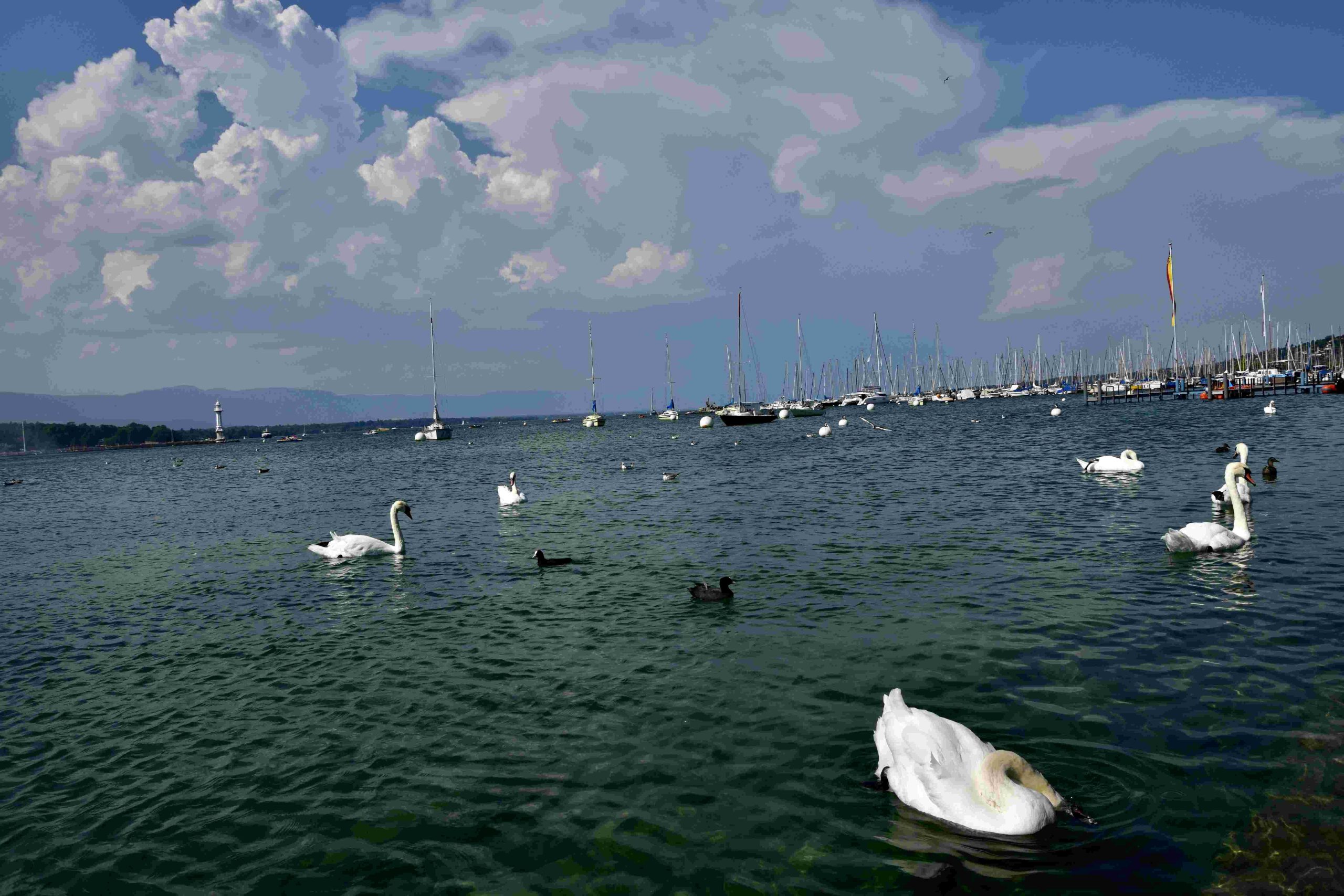The Lake Geneva beach closure in August 2024 was a significant event that impacted local residents and tourists alike. The closure was initiated due to the detection of harmful blue-green algae blooms containing toxic cyanobacteria. This situation led to the shutdown of several popular beaches around Lake Geneva, affecting swimming activities and raising concerns about water safety. The closure lasted for several days, with some beaches reopening gradually as conditions improved.
What Caused the Lake Geneva Beach Closure?

The primary reason for the Lake Geneva beach closure was the presence of harmful blue-green algae blooms. These blooms, identified as containing cyanobacteria, produce toxic cyanotoxins that pose serious health risks to humans, pets, and wildlife. The Walworth County Department of Health and Human Services, in collaboration with the Geneva Lake Environmental Agency (GLEA) and the Wisconsin Department of Natural Resources (DNR), detected these toxic algae blooms, leading to the decision to close the beaches.
When Did the Beach Closure Begin?

The Lake Geneva beach closure was initiated around August 23, 2024. This date marked the beginning of a period of restricted access to several popular beaches in the area, including:
- City of Lake Geneva’s Riviera Beach
- Big Foot Beach
- Town of Linn beaches (including Linn Pier Road Beach and Hillside Beach)
Which Beaches Were Affected by the Closure?
The Lake Geneva beach closure impacted multiple beaches around the lake. Here’s a breakdown of the affected areas:
- Closed Beaches:
- City of Lake Geneva’s Riviera Beach
- Big Foot Beach
-
Town of Linn beaches (Linn Pier Road Beach and Hillside Beach)
-
Reopened Beaches (as of August 30, 2024):
- Williams Bay Beach
- Fontana Beach
It’s important to note that even after reopening, visitors were advised to remain cautious about water conditions.
What Safety Regulations Were Enforced During the Closure?
During the Lake Geneva beach closure, several safety regulations were put in place to protect public health:
-
Swimming Restrictions: All swimming and water activities were strictly prohibited at closed beaches to prevent exposure to toxic algae.
-
Pet Safety Measures: Pet owners were warned to keep their animals away from the water and to prevent them from licking algae off their fur.
-
Symptom Monitoring: Visitors were advised to watch for symptoms related to blue-green algae exposure, including:
- Stomach cramps
- Diarrhea
- Vomiting
- Headache
- Fever
- Muscle weakness
- Difficulty breathing
If any of these symptoms occurred, individuals were recommended to contact a healthcare provider or the Wisconsin Poison Center at 800-222-1222.
How Long Did the Beach Closure Last?
The duration of the Lake Geneva beach closure varied for different beaches. While some beaches, such as Williams Bay and Fontana, began to reopen around August 30, 2024, others remained closed due to ongoing concerns about toxic algae. There was no specific timetable provided for the reopening of all closed beaches, as the decision was based on continuous monitoring of water conditions and the reduction of algae blooms.
What Activities Were Restricted During the Closure?
The Lake Geneva beach closure primarily affected water-based activities. Here’s a breakdown of the restrictions:
| Activity | Status |
|---|---|
| Swimming | Prohibited at closed beaches |
| Water sports | Prohibited at closed beaches |
| Boating | Allowed with caution |
| Kayaking | Allowed with caution |
While swimming and direct water contact were strictly prohibited at closed beaches, activities like boating and kayaking were still permitted, albeit with caution, as they posed less risk of exposure to the toxic algae.
How Did the Closure Impact Visitors?
The Lake Geneva beach closure significantly disrupted plans for many visitors, especially those who had intended to engage in swimming and water sports. Some of the challenges faced by visitors included:
- Inability to swim or participate in water activities at closed beaches
- Need to adjust vacation plans on short notice
- Limited access to certain areas of the lake
- Concerns about potential health risks from algae exposure
Despite these challenges, visitors were encouraged to enjoy other aspects of the area, such as the scenic views and lakeside amenities, while avoiding direct water contact.
Where Can I Find Updated Information About the Beach Status?
For the most up-to-date information about the Lake Geneva beach closure and current beach status, you can:
- Visit the Wisconsin Department of Health Services website: https://www.dhs.wisconsin.gov/algae/index.htm
- Contact the Bureau of Environmental and Occupational Health at 608-266-1120
- Check local news sources for the latest updates on beach conditions and reopenings
What Precautions Should I Take When Visiting Lake Geneva Beaches?
Even as beaches reopen, it’s important to take precautions when visiting Lake Geneva:
- Observe Warning Signs: Pay attention to any posted warnings or advisories at the beach.
- Avoid Algae-Infested Areas: Stay away from water that appears discolored or has visible algae blooms.
- Keep Pets Safe: Prevent pets from entering the water or drinking from the lake.
- Practice Good Hygiene: Wash your hands thoroughly after any contact with lake water.
- Monitor for Symptoms: Be aware of potential symptoms of algae exposure and seek medical attention if necessary.
By following these precautions, you can help ensure a safe and enjoyable visit to Lake Geneva beaches.
References:
- https://www.tmj4.com/news/walworth-county/harmful-algae-bloom-shuts-down-lake-geneva-beaches-visitors-forced-to-change-plans
- https://spectrumnews1.com/wi/milwaukee/news/2024/08/30/as-algae-recedes–lake-geneva-reopens-for-labor-day-weekend
- https://wtmj.com/news/2024/08/26/beaches-slowly-reopen-in-lake-geneva-as-blue-green-algae-spreads/
